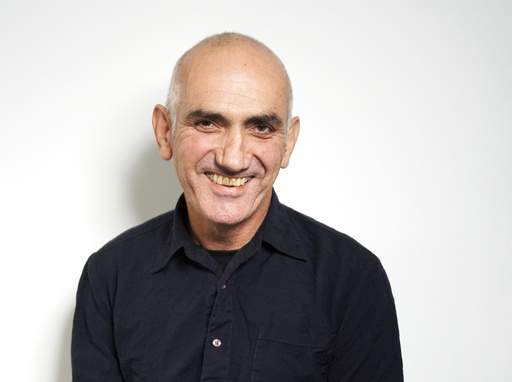
NEW YORK — Paul Kelly recently made his first trip to New York in seven years, taking the opportunity to visit Katz’s deli and a friend’s restaurant in Little Italy, while soaking in the city on long walks. The experience came to a head when he performed at a club on Bleecker Street, showcasing his music.
To those back in Australia, where his concerts at venues like the Sydney Opera House are always sold out, encountering Kelly performing in a New York venue is akin to finding Bruce Springsteen casually playing in a Melbourne bar for a New Jersey tourist. Despite the advancement of technology connecting the globe, cultural differences remain prominent, particularly in terms of music and local customs. At 69 years old, Kelly is a celebrated figure in Australia, gaining traction, while remaining a lesser-known artist internationally.
“He’s our Bruce Springsteen,” shared expatriate Vicki Zubovic, who attended his mid-October performance at New York’s Le Poisson Rouge nightclub. “He narrates our experiences about love, loss, and the entirety of life.” Other attendees from Australia enthusiastically chimed in with lyrics that referenced familiar locations, such as the Melbourne Cricket Grounds (MCG).
During his performance, Kelly acknowledged his admiration for the United States, opening with the well-known track “Careless,” which features the line “how many cabs in New York City?” He also incorporated “Everything’s Turning to White,” inspired by the short story “So Much Water So Close to Home” by Raymond Carver. The song “Gonna Be Good” reflects elements from Johnny Cash’s classic, “I Walk the Line,” highlighting lyrical interpretations about boundaries and dreams.
Kelly’s down-to-earth songwriting shines through his emotionally charged pieces, a quality that impressed renowned singer-songwriter Lucinda Williams when she witnessed him perform in Los Angeles years prior. Though she had heard of him during her tours in Australia, she had never listened to his music until that night. “I was completely blown away,” Williams recalled, expressing her admiration for his talent to her husband during the show.
Despite his extraordinary talent, Kelly remains relatively obscure in the United States. He was signed to A&M Records in the early 1990s after establishing his name with rock ‘n’ roll bands during the ’80s, but a lack of rapid success here led to his departure from the label. “Some of it might fall on the record industry,” said Williams, echoing difficulties many artists face.
Kelly’s diverse musical style may have added to the challenge of gaining traction. He has explored various genres, ranging from bluegrass to Shakespearean sonnets, as well as blues music and even songs inspired by nature. Such eclecticism can make it difficult for marketers to categorize and promote his work effectively.
Unfortunately, geographical barriers and a stroke of bad luck have also impacted his U.S. tours. Kelly was slated to open for Shawn Colvin and Keb’ Mo’ this fall, but the tour was canceled due to Keb’ Mo’ undergoing heart surgery. Over the years, he has faced financial losses on tours across America, which can make staying in Australia to perform in larger venues more appealing.
Although he travels to the United States whenever feasible, Kelly recognizes that audience reactions are beyond his control. “That’s life,” he remarked candidly about the unpredictability of the music business. “When I started writing songs and performing, I never viewed it as a career. In fact, I dislike the word ‘career.’ It’s important to me that my work feels like play, and I’ve been fortunate enough to carve out a living through it.”
His latest album, released this fall, highlights his storytelling prowess. In tracks like “Going to the River with Dad,” he paints vivid images from his past, evoking memories of familial bonds. Images of heartfelt moments and details animate his lyrics, while “All Those Smiling Faces” encourages listeners to seize the moment and dance while they can.
Kelly draws inspiration from notable songwriters, including Ray Davies, Lou Reed, and Chuck Berry, who craft songs that visualize stories. He states, “You can see their songs. They’re cinematic. I lean in that direction.”
Family themes are prevalent in his music, evident in songs like “When I First Met Your Ma,” where he recounts the love story of his children’s parents. His classic “To Her Door” has been recognized as one of the best Australian songs, with themes of heartache and hope intertwined in the storytelling.
Kelly’s extensive repertoire led him to perform 100 of his songs in alphabetical order over four nights in the late 2000s, a remarkable venture that culminated in a box set and a book release.
One of his most notable works, “How to Make Gravy,” emerged from a request to record for a holiday compilation. Abandoning his first choice, Kelly penned a song set in prison, delivering a narrative filled with deep emotions, longing, and humor. The song’s significance resonates deeply with fans; for many Australians, the date December 21, referenced in the lyrics, has become “Gravy Day,” symbolizing the holiday spirit.
Bella O’Grady, a 27-year-old who recently moved to New York and attended one of Kelly’s shows, expressed how “Gravy” evokes fond memories of her celebrations. Music historian Glenn A. Baker stated that Kelly epitomizes an essential part of the Australian identity, adding, “His songs blend seamlessly into our culture, making it hard to understand why they don’t resonate more widely. But for many Australians, we embrace that; it means he’s all ours.”
